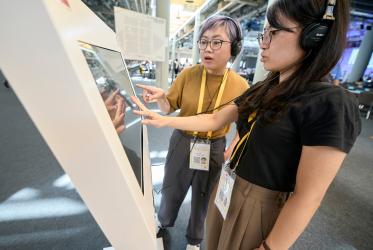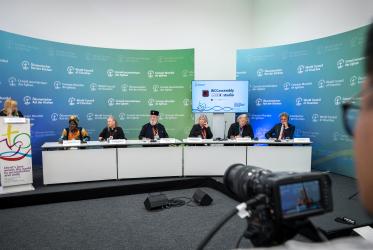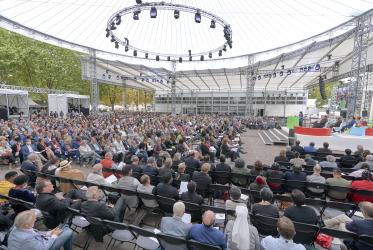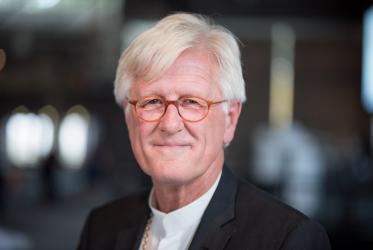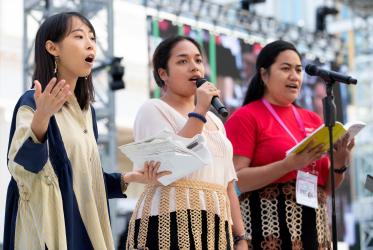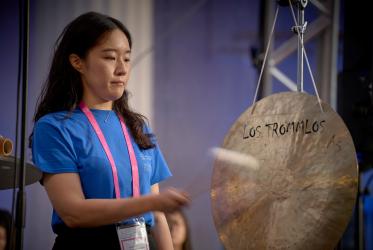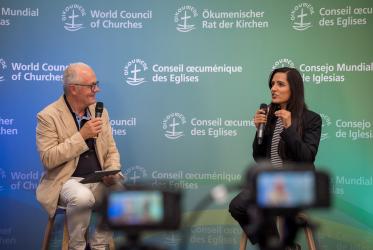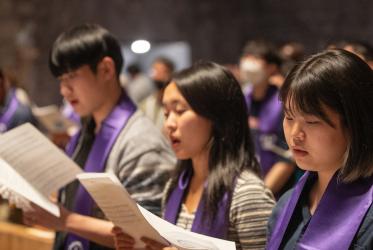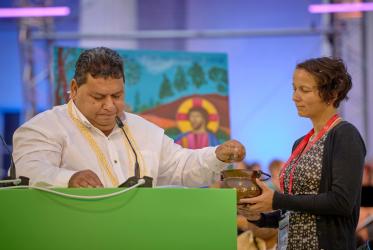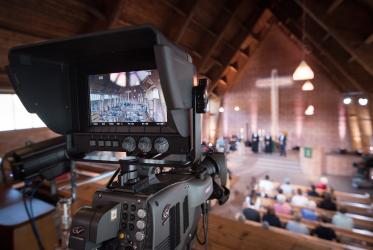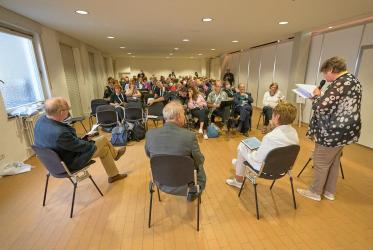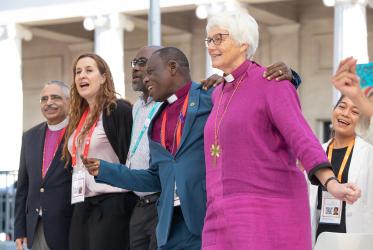Displaying 61 - 80 of 563
26 September 2022
Hospitality and encounter: The rich welcome of German churches
15 September 2022
From hostility to hospitality: Closing prayers at Karlsruhe
09 September 2022
Bishop Dr Heinrich Bedford-Strohm reflects on new role as moderator
09 September 2022
Dear future steward
08 September 2022
Harmonies of unity: Wednesday morning prayers
07 September 2022
Children of God unite in Tuesday morning prayers
06 September 2022
Side-by-side, they pray for peaceful unification of the Korean Peninsula
06 September 2022
Assembly participants come together as church families
04 September 2022
Christian-Jewish Dialogue: Faith is why we are here today
04 September 2022
Morning prayer explores love for our neighbour
03 September 2022
Brunnen: a well of faith-inspired initiatives
01 September 2022
